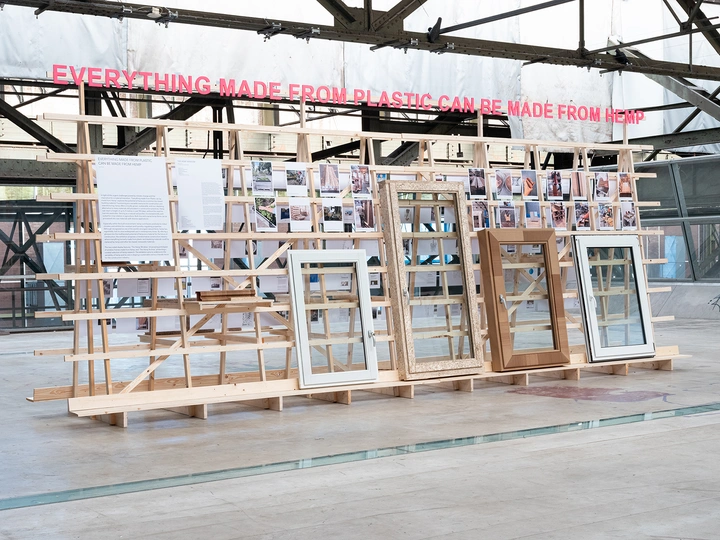Everything made from Plastic can be made from Hemp

Anne Geenen
Siri Heidweiller
Preradon Pimpakan
David Schmidt
Mingus ten Cate
Anna Zan
Site Practice is an architecture and design studio led by Anne Geenen and David Schmidt. The studio has been working from their studios in Mumbai and Amsterdam since 2019 from a strong commitment to processes of making and construction. With a focus on social, ecological and economic sustainability, the studio designs buildings, places and objects in Europe, Southeast Asia, India and the Middle East.
Site Practice won two AD100 Award, was nominated for the ARC 20 Young Talent Award and won the BNA Next Step Award in 2022. Prior to founding Site Practice, Anne Geenen was partner at Case Design and co-founded the furniture brand Casegoods. David Schmidt previously worked as an associate at London-based 6a architects. From these previous experiences, Anne and David have positioned themselves with Site Practice as a young and ambitious firm, focusing on projects that pay attention to the environment and how things are made. They work on projects that have both social and material sustainability as guiding design ambition, regardless of scale, location or complexity.
Since its founding Site Practice has increasingly specialised in biobased and nature-inclusive building practices. The studio aims to focus on interdisciplinary projects and collaborations, that in addition to architecture and spatial design also focus on landscape and product design.
Amongst others, the studio worked on the design of a large-scale social housing project in hemp (Hennephof, Nijmegen), looked at new roles for agriculture as a production site for renewable building materials (Rural Practices) and design projects with passive climate systems based on indigenous and rural practices of dealing with hot climates (Hot Cities, Avasara Campus). Last year the studio won the urban architectural competition for "Fritz District," the transformation and expansion of a colossal former office building in Munich, into a 75.000 m2 multifunctional and highly sustainable city district.
With urgent challenges posed by climate change and the imperative for a material transition, "Everything made from Plastic can be made from Hemp" explores the potential of hemp as a common biobased building material. A versatile resource for construction and manufacturing, hemp offers a locally grown, sustainable, and non-depleting alternative to many materials still prevalent in construction practices. Hemp grows up to 4 metres in just 100 days without the need for harmful pesticides. Serving as a natural soil purifier it is exceptionally well-suited for crop rotation in agriculture. Both fine and coarse hemp fibres can be processed into raw materials with diverse applications.
Hemp contributes positively to indoor climates and holds fire-resistant and humidity-regulating properties. Although recognised as one of the world's strongest natural fibres, hemp has regrettably lost its once widespread use in today’s times. By offering an insight into the multifaceted potential of hemp as a material for future construction, the project proposes a transformative construction industry where everything formerly made from plastic and depleting materials could be replaced by hemp and other bio-based, renewable materials.
The project showcases "The Hemp Window"; prototypes of window frames made from hemp and "The Hemp Archive"; a curated selection of hemp research. Symbolising the necessary material transition in the building industry, the hemp prototypes illustrate the challenges in terms of technical aspects, aesthetics, regulations, etc. The collaborative process behind the making of the prototypes emphasises the importance of an open dialogue that is necessary to move towards a bio-based construction industry. By revitalising hemp as a widespread building material, the project is a call to policy makers, designers, builders, engineers, architects, innovators, farmers etc to address the challenges that accomplish the transition towards a non-exhaustive building culture